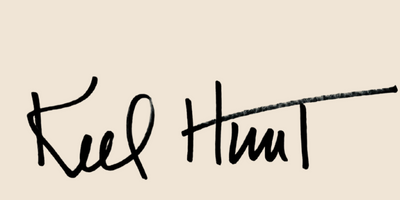What Kind of Nation
/“In this difficult day, in this difficult time for the United States, it is perhaps well to ask what kind of a nation we are and what direction we want to move in.”
Those words, so relevant to our current day, were actually spoken 51 years ago. The place was Indianapolis. The speaker was Senator Robert F. Kennedy, then running for president, and the time was early evening, just hours after Dr. Martin Luther King Jr. had been murdered in Memphis.
Then, as now, there was anger and fear in our nation, and a great distrust of authority. The nation was fundamentally adrift. So, too, is America now.
The issues today are admittedly different, but what worries our cities and our families now are both new and also very old. History can be a helpful teacher, though often too many us fail to pay attention.
Our nation and our cities have become fractured in fundamental respects. There is much strength around to hold us together, but our communities and neighborhoods also struggle for communication, for understanding, for connection and context.
In many aspects, the news media especially do not help us in this struggle. Some do, but most do not.
While some newspapers are persisting in the good fight of truth over misinformation, sadly fewer of us read newspapers anymore. While there also continues to be some important television coverage of local issues, so much of TV has been whittled down to essentially the same maddening clips that may yield ratings numbers but little truth of what communities need to know.
That is especially true of CNN and Fox, in which every moment must yield a blockbuster “live” interruption, each more grave in tone and/or lurid than the one it interrupted, whether the newest development is actually important or not.
That phenomenon, in my view, is especially treacherous terrain for our young people and what is to become of them in this angry age. It’s one thing for a teen or young adult to constantly text friends with quick messaging – but quite another if the small hand-held screen becomes that young person’s only channel for perceiving the wider world.
As editors and producers fight forward to figure out what citizens need to know, more of them ought to give some deeper thought now to context and history, and less attention to snatches of “news” in the immediate moment. I don’t suggest that this is an easy task – it is surely one of the hardest of our age – but the experts who ought to be leading the way sadly are not.
It meanwhile does not help any of us to have a President who does not understand history and the wider world, who does not read unless someone else’s words are on a TelePrompTer, and who projects less care for context and consequences than for snarky tweets and thumbs-up grins too wide at the wrong moments.
I often think that what our republic needs most today is a set of broadly available lessons about basic journalism: What is the news, what is the historical role of news media, how to read the newspaper with good scrutiny, and the importance of multiple sources of information.
And what of the most important values of our society, and of democracies everywhere? What of compassion and of love among our human family? How shall we all, especially our younger generations, know these values too?
On that awful night in 1968, Senator Kennedy also said this:
“We can do well in this country. We will have difficult times; we’ve had difficult times in the past; we will have difficult times in the future…. But the vast majority of white people and the vast majority of black people in this country want to live together, want to improve the quality of life, and want justice for all human beings who abide in our land. Let us dedicate ourselves to that, and say a prayer for our country and for our people.”


